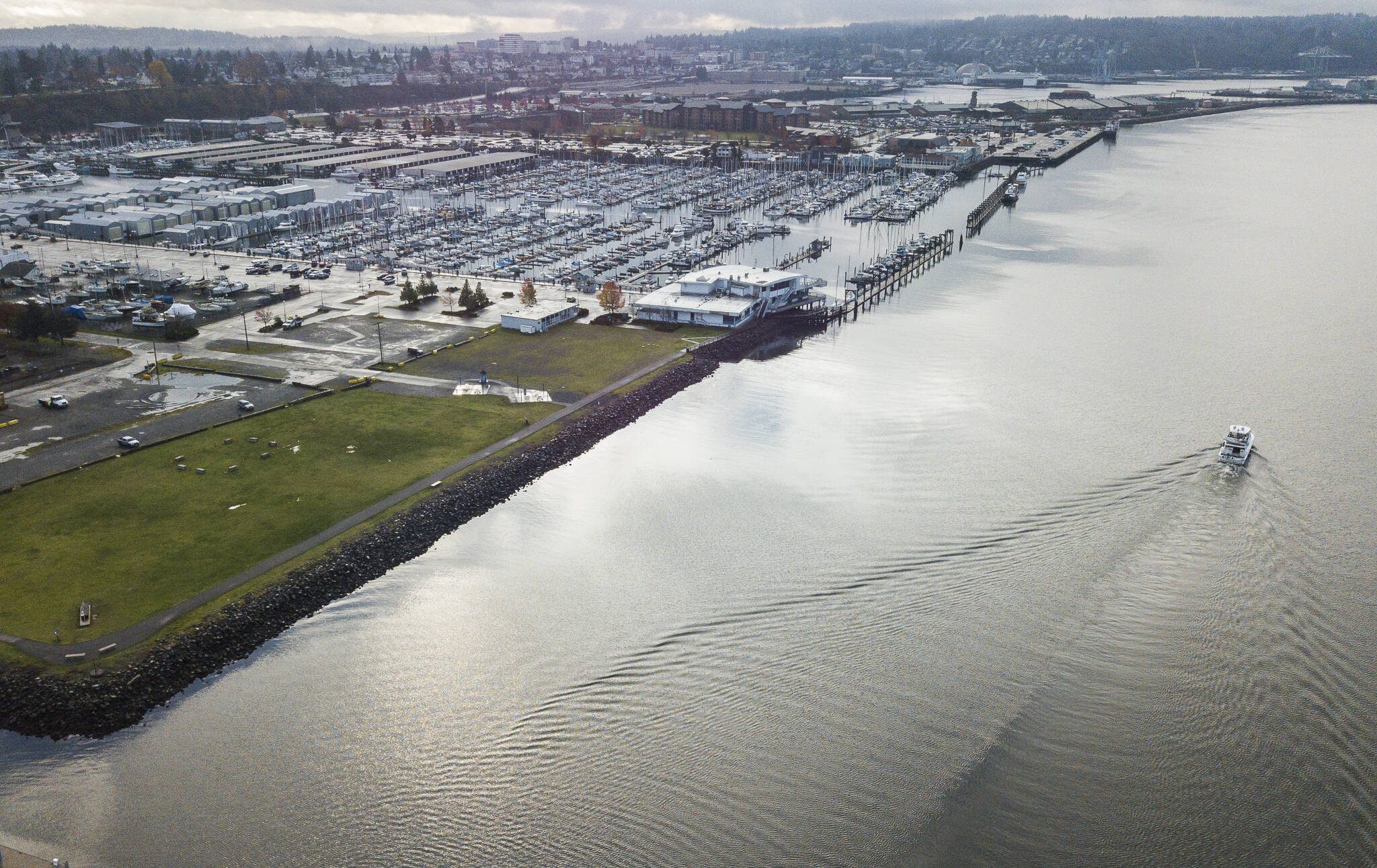EVERETT — Voters next month will decide whether the the Port of Everett should expand its boundaries to include most of Snohomish County.
Expanding the port to include the entire county, excluding the Port of Edmonds district, would make port resources available to more communities, said port CEO Lisa Lefeber.
Those could include matching port funds and state and federal funding sources that can be used for road improvements, bridges, shoreline restoration, industrial development, small business support and trail enhancements.
The port boundaries, set in 1918, cover Everett, as well as portions of Mukilteo, Marysville and unincorporated Snohomish County.
Approval would allow the port district to fund eligible projects in communities like Lynnwood, Bothell, Arlington, Lake Stevens, Snohomish and other cities, port officials said.
The port is characterizing the proposal as a workforce measure that will create more family wage jobs and offer economic benefits to most of the county.
Those opposed to the measure say it would add an unnecessary layer of government and increase the tax burden for property owners.
If voters approve the measure, property owners within the port’s new boundary would pay port taxes. Tax collection would begin in January 2026.
Property owners within the current port district pay 18.8 cents per $1,000 of assessed value. Homes valued at $550,000 pay about $100 in annual taxes to the port.
Port taxes are not collected on tribal trust lands or military property.
Taxes are spent on environmental cleanup, business development, job growth, transportation improvements and capital projects. The money cannot be used for salaries or operations.
The additional tax revenue would similarly be used for environmental cleanups, creating greater public access to waterways and improvements to roads and other infrastructure. The port’s 2024 adopted budget totaled $83 million.
Opponents, like Mountlake Terrace attorney Ron Steingold, said the port is being too vague about what it would do with the additional money it would collect. Steingold and local government gadfly Morgan Davis wrote the statement opposing the measure in the voters’ pamphlet.
“They don’t have any specific plan for how they’re going to use it,” Steingold told The Daily Herald’s Editorial Board.
In response, port officials said they’re not committing to any particular projects yet, because they want input from each community about their needs should the measure pass.
Steingold and others are also concerned the port will raise the current taxation level.
“They can increase the tax to 45 cents per $1,000 of assessed value and go even higher if they do bonds,” Steingold said.
If the measure passes, property owners will pay a tax to the port every year, he continued.
He also questioned the port’s authority to act as an extra layer of government focused on “economic development.” The county and most Snohomish County cities already devote tax dollars to this, he said.
The Tulalip Tribes also oppose the measure, with Chair Teri Gobin calling it “an attempt to exert jurisdiction over Tulalip territory” and a “taxation strategy to provide the port with additional revenue for development.”
As it stands, the ports of Everett and Edmonds represent roughly 15% of Snohomish County, according to a recent port report. About 15 of the state’s 75 port districts, including King, Pierce and Whatcom counties are countywide.
The port operates three lines of business: the international shipping terminals, a 2,300-slip marina and 3,400 acres of real estate.
Like a private venture, each of the business lines is required to be self-supporting. The seaport, marina operations and the port’s administration are self-supporting, meaning no taxes are used for their support.
Jobs tied to the port typically pay more than than $90,000 annually. The port currently supports nearly 40,000 jobs in the region and contributes $433 million to state and local taxes. For every $1 the port invests, it yields $7.90 for the community’s economy, port officials said.
A simple majority, 51%, is needed to pass the measure. Ballots are due Aug. 6.
If approved, a second election 16 months later would determine whether to increase the number of port commissioners from the current three to five. Commissioners represent port residents, set policy and approve port projects and programs.
Janice Podsada: 425-339-3097; jpodsada@heraldnet.com;
Talk to us
> Give us your news tips.
> Send us a letter to the editor.
> More Herald contact information.

























